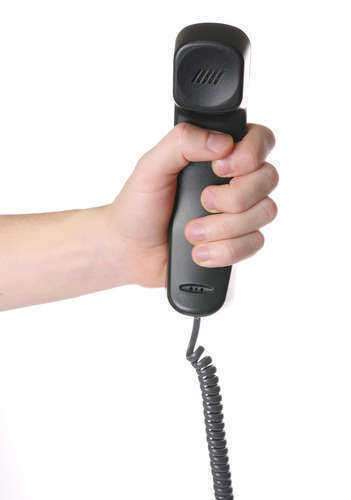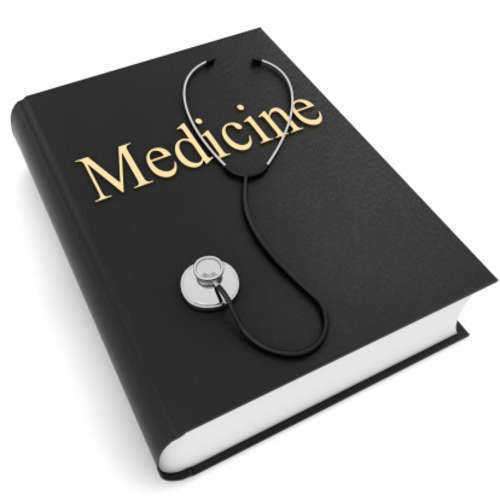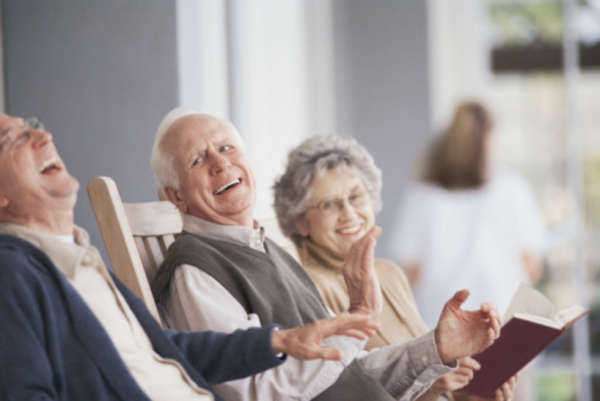Alzheimers Association



Both the Center for Medicare and Medicaid Services have cases of health fraud.
Medicare Phantom billing is the act of billing the Medicare program for medical tests, procedures or equipment that was either unnecessary or never provided. Medical care providers that perform this kind of fraud do so to exact more funds from the Medicare program for purposes other than providing vital care to beneficiaries.
Patient billing is the act of billing the Medicare program for procedures or services that were never rendered with the assistance of a Medicare beneficiary. The beneficiary will provide personal Medicare information claiming that the billed procedures did indeed take place to then receive a portion of the Medicare funds paid out.
Bill inflation is the act of using Medicare billing codes for more expensive procedures in the place of more basic procedures to receive more Medicare funds.
Medicare beneficiaries are asked by the CMS to report any form of Medicare fraud by calling, mailing or faxing letters, or emailing the Medicare fraud hotline through the Department of Health and Human Services with their concerns. Beneficiaries must provide information identifying themselves, dates of bills and procedures, reasons as to why Medicare should not have paid for the procedures or services and information identifying the medical provider. This way action can be taken to investigate the fraud claims submitted to the Medicare fraud hotline.
The Medicare fraud hotline also allows beneficiaries to report abuse suffered from health care providers.
Social Security fraud is often perpetrated through either theft of Social Security numbers, impersonating Social Security Administration employees or sending out fraudulent mailings posing as official letters from the Social Security Administration.
The theft of Social Security numbers enables the thief to have access to personal information of the Social Security beneficiary in addition to redirecting where Social Security benefits are directed. This is known commonly as identity theft.
By impersonating an employee of the SSA, the impostor hopes to gain access to personal information and Social Security information of the intended victim. In this way, the impostor can then steal Social Security benefits.
By sending fraudulent letters that pose as official mailings from the SSA, perpetrators again try to receive personal information relevant to Social Security benefits and then gain access to those funds.
The Social Security Administration has created a Social Security fraud hotline for beneficiaries to report cases of fraud by calling, mailing or faxing letters, or emailing the SSA directly. In addition to the Social Security fraud hotline, the SSA has a private investigatory force known as Continuing Disability Investigations or CDI. The CDI also coordinates with the Federal Bureau of Investigation and the Office of the Inspector General to investigate fraud reports submitted to the Social Security fraud hotline.
Both the Medicare fraud hotline and the Social Security fraud hotline were created with the assistance of the Office of the Inspector General.

The first meal delivered by an ancestor
program of Meals on Wheels in the United States was in January of 1954 in
Pennsylvania. This city funded program inspired other cities throughout the
country to develop a program where food is brought to needy senior citizens and
“shut-ins” who, without the program, would otherwise go hungry. After
Ohio and New York created similar programs to the one in Philadelphia, a
national program known as the Meals on Wheels Association of America (MOWAA)
was founded.
Although the MOWAA was created based
upon events in Philadelphia, Meals on Wheels began in England in the 1940s. As
a result of the Nazi Germany blitzkrieg and
the bombings of the RAF during World War II, the Women’s Volunteer Service
delivered cooked meals to the hungry in Hempstead, Hertfordshire. Later, in
1952, Australia adopted a similar Meals on Wheels program that was implemented
by a woman delivering food on her tricycle. The Red Cross then stepped in
to support her efforts. Meals on Wheels was officially created in Australia in
1953 in South Melbourne.
The modern efforts of the MOWAA are
based on a Meals on Wheels program that was started in San Diego. This program
was a non-profit organization that coordinated the delivery of food to senior
citizens that need nutrition and human contact. National MOWAA operations are
conducted under the provisions of the “Four Pillars” which provide
for quality senior nutrition. These pillars ensure that meal providers serve
meals to the homebound, have food delivered on weekdays (with some providers
offering extra meals for weekends), facilities for food providers are in
adequate condition to function properly, and to respect the independence of the
homebound.
Other modern initiatives of MOWAA
include March for Meals, the Rural Initiative, Emergency Preparedness, and
WALOP.
March for Meals is an annual effort to raise funds and
advocate for those that suffer from senior hunger nationwide. It is held in the
month of March and was created to recruit new meal providers and provide
information about senior nutrition.
The Rural Initiative is MOWAA’s effort to extend service to
homebound senior citizens that live in remote, rural locations which challenge
meal providers due to cost and distance restraints.
Emergency Preparedness guidelines have been established by
the MOWAA in order for Senior Nutrition programs and meal providers to respond
to the needs of seniors in emergency situations.
WALOP, or We All Love Our Pets, is an initiative to provide
services for the pets of homebound senior citizens. This initiative was
introduced in 2006.
The MOWAA has also created the MOWAA
Foundation which performs studies about senior nutrition needs and the
nutrition needs of the disabled in the United States. A 2007 study entitled The Causes, Consequences and Future of
Senior Hunger in America provided statistics on those suffering from
senior hunger and those at risk.
The Meals on Wheels Association of
America is the oldest and most expansive program in the United States to meet
the needs of senior nutrition and the nutrition of people with disabilities
through a form of

MedilinePlus and the MedilinePlus Medical Encyclopedia are the products the National Library of Medicine’s efforts to provide medical information, including senior health information, to the general public. MedilinePlus was launched in 1998 to provide information for the growing Internet community. When launched, MedilinePlus featured 22 health topics available in the English language. One of the 22 topics is dedicated to senior health information and senior health issues. The MedilinePlus Medical Encyclopedia of today contains over 800 topics that have been translated into over 40 languages in addition to English.
Over the years, the MedilinePlus Medical Encyclopedia expanded to include more topics, options for easier searches, and information specific to the queries of the Internet user. This includes providing senior health information pertinent to the elderly. For example, a senior citizen can view any information related to the elderly, such as societal issues that may affect a senior’s health
In addition to the MedilinePlus Medical Encyclopedia, MedilinePlus and the National Library of Medicine provides information through a medical dictionary, health news articles, videos and interactive tutorials which are all available on the MedilinePlus website.
Key milestones of the MedilinePlus Medical Encyclopedia include:
The debut of the website in October of 1998;
The ability for patients to receive general medical advice related to medical conditions as made available in May of 2000;
The addition of medical news articles through Reutershealth in January of 2001;
The site being accredited by the American Association of Health Plans and being the first government website to do so in April of 2002;
The site reaching 800 health topics in July of 2009;
The creation of Mobile MedilinePlus for people browsing the Internet on mobile devices in January of 2010;
and, the debut of over 70 animated videos on the human anatomy in May of 2010.
The MedilinePlus Medical Encyclopedia has received information from over 1,300 organizations provides over 18,000 links to health information to the benefits of its browsers, many of which review senior health information for the benefit of family members or patients.

In the United States there are many organizations and agencies that endeavor to provide high quality care and services for senior citizens and the improvement of elder care as a field. These organizations, both private and non-profit, collaborate with health care professionals and other care providers to meet the growing needs of the senior citizen community in the United States.
Some of the resources available for aging adults are the Alzheimer’s Association, the American Association of Homes and Services for the Aging, the Center for Medicare and Medicaid Services, the Meals on Wheels Association of America, Medicare and Social Security fraud hotlines, and the MedilinePlus Medical Encyclopedia. Each of these resources focuses on senior health and its improvement.
Alzheimer’s Association
The Alzheimer’s Association is an organization focused on the prevention and elimination of Alzheimer’s disease worldwide. Alzheimer’s disease is disorder that affects the brain causes it to degenerate through the lack of proteins being created in the brain tissue. The disease primarily effects people aged 60 or older and is a terminal illness that affects the memory and other brain functions. The Alzheimer’s Association directs funds to research and advocacy to combat the disease and prevent more people from suffering.
The services that the Alzheimer’s Association provides educate people about the disease, allow people to voice their questions and opinions about Alzheimer’s, and even Emergency Services if, for example, a person with Alzheimer’s wanders away from home. In addition to these services, the association offers nationwide and international programs to raise money and educate health care professionals about new developments in the treatment and prevention of Alzheimer’s disease. The main program that the Alzheimer’s Association hosts is the Memory Walk to raise awareness and money for Alzheimer’s research.
American Association of Homes and Services for the Aging
The American Association of Homes and Services for the Aging, or AAHSA, is network of organizations that seek to provide adequate care and housing for senior citizens in the United States. AAHSA not only focuses on the current state of senior health care, but generates ideas and plans for the future. It does this through a global network of affiliates that offer services, conduct research and develop technology for the growing aging health care needs in the global community.
AAHSA was formed in 1961 by health care officials concerned with providing high quality services for seniors in the United States. Since then, over 5,000 members have joined the association, mainly non-profit organizations, to provide and develop high quality and ever improving care for the elderly.
Center for Medicare and Medicaid Services
With regional offices located throughout the United States, CMS ensures that both programs are functioning effectively and are providing the proper care to those that need it. CMS also works with other federal and state agencies to fund and administer the Medicare and Medicaid programs to its beneficiaries. The Medicare program specifically provides medical insurance to senior citizens and the disabled through funds made available by Social Security taxes. The Medicaid program provides medical insurance to people with limited financial resources through state and federal funds.
Meals on Wheels Association of America
The Meals on Wheels Association of America (MOWAA) is a nationwide program that delivers food to homebound senior citizens and persons with disabilities. The program’s origins in the United States began in Philadelphia by local women delivering food to “shut ins”. Other cities followed this example which then led to the creation of a nationwide network of food providers that provide hot or microwavable meals to senior citizens. The mission of the MOWAA is to eradicate senior hunger in the United States.
The MOWAA also has a foundation that conducts research on senior hunger and provides statistics on the needs of the hungry in the United States. The MOWAA also has initiatives to make sure that seniors receive care in emergencies and for their pets as needed. Meals on Wheels programs also exist in Canada, Australia and England – the program first officially formed during World War II in England.
Medicare and Social Security Fraud Hotlines
The Social Security Administration (SSA) and the Center for Medicare and Medicaid Services (CMS) have provided hotlines for beneficiaries to report cases of fraud regarding the program. These hotlines allow the two agencies to investigate fraud and return funds to the program to be administered to each program’s beneficiaries. Social Security fraud and Medicare fraud cause all beneficiaries to suffer from higher premiums and program restrictions due to the theft of funds.
Social Security fraud often involves the theft of a beneficiary’s Social Security number for the purpose of identity theft and receiving the Social Security benefits of another person. Medicare fraud is the improper billing of services to the Medicare program to receive more money. These services or procedures do not necessarily have to occur, however, the health care provider will note in the bill that they have. Both hotlines allow beneficiaries to report fraud by calling, mailing or faxing letters, or emailing the agency directly for the fraud report to be investigated.
MedilinePlus Medical Encyclopedia
The MediliinePlus Medical Encyclopedia is an online database of health information that was created by the National Library of Medicine. In 1998, the National Library of Medicine saw the growing amount of Internet users and MedilinePlus was its effort to provide important health facts and data to those users
The medical encyclopedia contains over 800 health topics which are divided into subsections including Body Systems, Disorders and Conditions, Diagnosis and Therapy, Demographic, and Health and Wellness. This makes it easier for users to find information. In addition to English, the encyclopedia is available in Spanish and 40 other languages.
For senior citizens, the MedilinePlus Medical Encyclopedia has a specific health section related to senior health under the Demographic heading. This directs that person to information on diseases, disorders, disabilities and treatments regarding senior health.